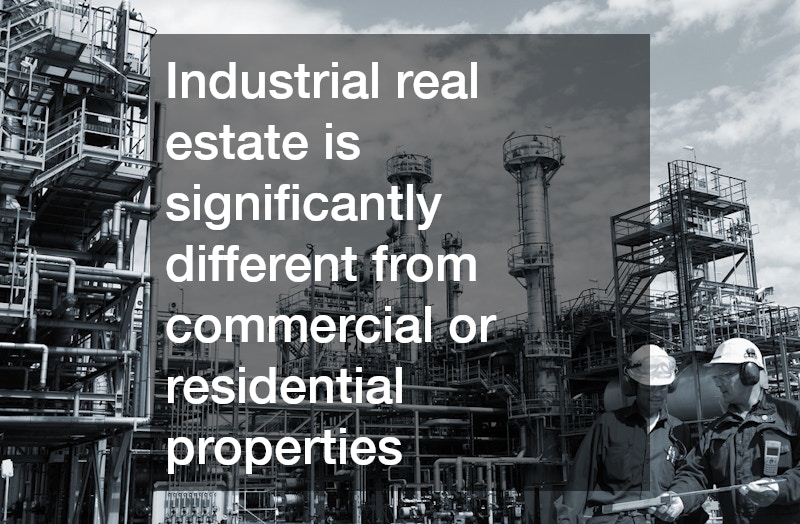Industrial real estate refers to properties used for manufacturing, production, storage, and distribution. These properties are an essential component of the global economy, supporting a wide range of industries from automotive to electronics. As the demand for goods continues to rise, so does the need for spaces where these goods can be efficiently processed and distributed. Investors looking at ” industrial property for sale” must understand the nuances of the market, such as location and tenant demands, to make informed decisions. The right property can yield substantial returns, especially in booming industrial hubs.
Industrial real estate is significantly different from commercial or residential properties both in how it functions and how it is assessed. Key factors for value determination include access to transportation hubs, the capacity for technological improvements, and future growth in the surrounding area. With the advent of e-commerce, warehouses and distribution centers have become increasingly integral, accommodating the rapid fulfillment needs of online retailers. Savvy investors look for properties with high functionality and adaptive capabilities, ensuring they can meet evolving logistics requirements. It’s not just about the physical space; the integration of technology is reshaping how these properties are used and valued.
Furthermore, understanding zoning laws and land use regulations is crucial when investing in industrial real estate. These laws vary considerably across regions and can significantly impact the types of industries that can occupy a given space. Additionally, industrial investors must consider the environmental implications of their properties, particularly if dealing with manufacturing or heavy industry. This includes assessing potential contamination risks and cleanup liabilities that might arise from past or present uses. Investing in industrial properties isn’t merely about financial returns; it also involves ethical and legal responsibilities to ensure sustainable operations.
Benefits of Investing in Industrial Real Estate
Industrial real estate investment offers a range of benefits, particularly its potential for stable, long-term cash flow. Unlike residential tenants, industrial tenants typically sign longer leases, providing investors with consistent income. These leases often include clauses where tenants are responsible for maintenance and repairs, reducing the burden on property owners. As industrial sectors grow, the demand for appropriately zoned and well-located properties increases, further enhancing their value. This sector’s resilience to economic downturns also makes it an appealing option for individuals seeking to diversify their investment portfolio.
Another advantage is the relative insulation from fluctuations in residential and commercial real estate markets. Industrial properties are driven by broader economic trends, such as the growth of e-commerce and advances in supply chain logistics, rather than consumer spending habits. As businesses expand operations and technology plays an increasingly crucial role, the need for specialized spaces that accommodate new manufacturing and distribution methods also grows. For potential investors, this means industrial real estate can often provide stronger growth opportunities compared to other real estate sectors. Additionally, with the advent of smart warehouse technologies, properties that can adapt to these innovations are in high demand.
A well-chosen industrial property investment can also lead to capital appreciation over time. As areas become more industrialized or as infrastructure improves, the value of well-placed properties can significantly increase. Investors should keep an eye on urban expansion and redevelopment projects, which might open new avenues for industrial growth. Moreover, as governments are increasingly investing in infrastructure development to stimulate economic growth, properties located near significant transport links can see substantial appreciation. Capitalizing on these trends requires an understanding of both industrial markets and urban planning dynamics.
Risks and Challenges in Industrial Real Estate
Despite the many perks, investing in industrial real estate does come with its challenges. Market saturation or liquidation of industries can lead to vacancies that are much longer to fill compared to other property types. The specific needs of industrial tenants also mean properties can require significant capital investment to remain competitive. Maintenance costs can be high, especially for older buildings that need upgrades to meet modern standards. Therefore, investors must be prepared for the potential of long periods without income if they choose industrial properties in less desirable locations or markets.
Economic downturns, while not generally as impactful to industrial properties as residential, still pose a risk. Factors like changing trade policies, technological disruption, and shifts in manufacturing bases can significantly impact property values. Global events such as pandemics also highlight vulnerabilities in the supply chain, potentially affecting the rental income of industrial properties. Investors must therefore stay informed about global economic trends and be flexible in adapting their investment strategies. Diversifying within industrial portfolios can also help mitigate some of these risks by spreading exposure.
Additionally, with the increasing focus on environmental sustainability, rising regulatory pressure may require costly eco-friendly upgrades for older properties. Properties not conforming to these standards risk becoming obsolete or too expensive to retrofit. Understanding the potential costs and regulatory demands is essential for anyone considering industrial real estate investment. It’s critical for investors to perform thorough due diligence, including evaluating tenant creditworthiness and conducting detailed cost analyses. Navigating these complexities requires expertise and a commitment to ongoing education about market and regulatory changes.








